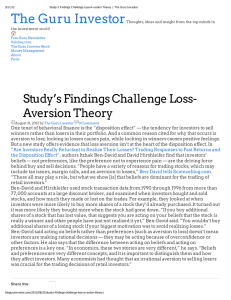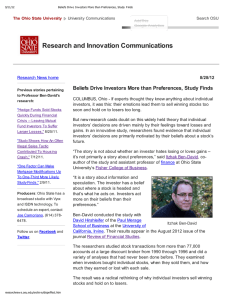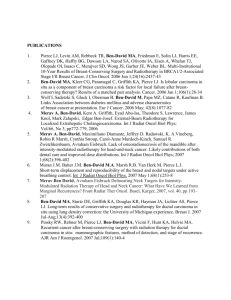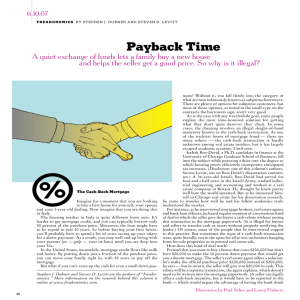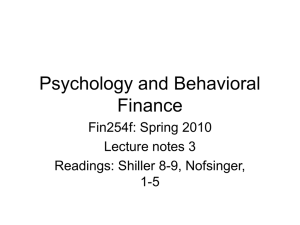Not-so-smart Money
advertisement
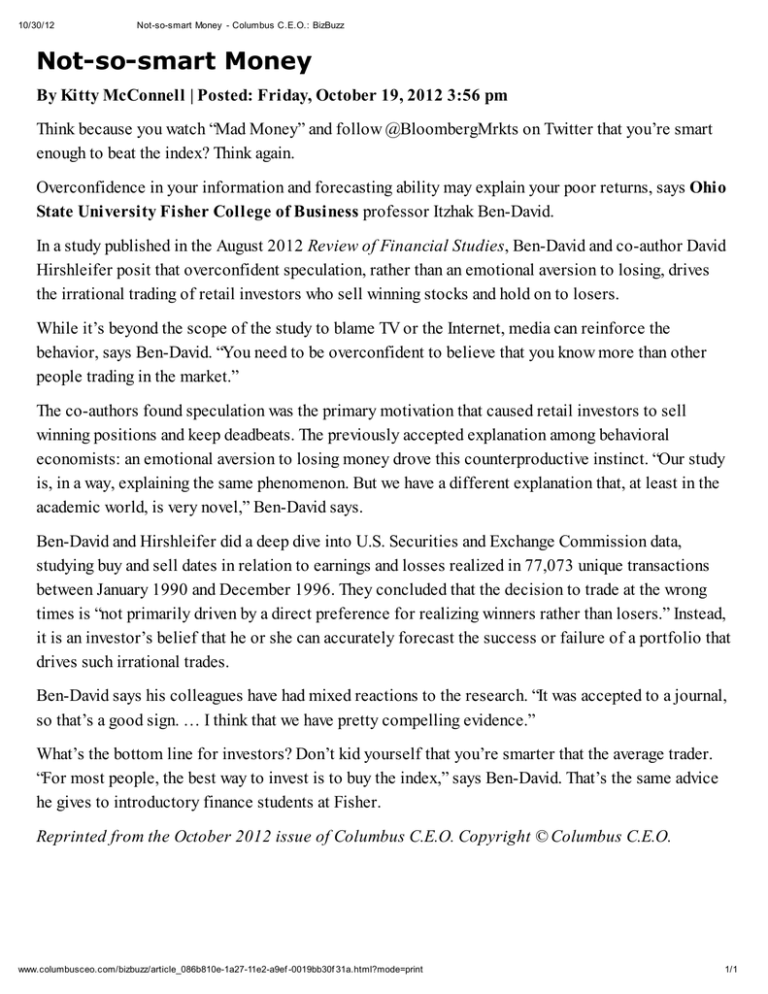
10/30/12 Not-so-smart Money - Columbus C.E.O.: BizBuzz Not-so-smart Money By Kitty McConnell | Posted: Friday, October 19, 2012 3:56 pm Think because you watch “Mad Money” and follow @BloombergMrkts on Twitter that you’re smart enough to beat the index? Think again. Overconfidence in your information and forecasting ability may explain your poor returns, says Ohio State University Fisher College of Business professor Itzhak Ben-David. In a study published in the August 2012 Review of Financial Studies, Ben-David and co-author David Hirshleifer posit that overconfident speculation, rather than an emotional aversion to losing, drives the irrational trading of retail investors who sell winning stocks and hold on to losers. While it’s beyond the scope of the study to blame TV or the Internet, media can reinforce the behavior, says Ben-David. “You need to be overconfident to believe that you know more than other people trading in the market.” The co-authors found speculation was the primary motivation that caused retail investors to sell winning positions and keep deadbeats. The previously accepted explanation among behavioral economists: an emotional aversion to losing money drove this counterproductive instinct. “Our study is, in a way, explaining the same phenomenon. But we have a different explanation that, at least in the academic world, is very novel,” Ben-David says. Ben-David and Hirshleifer did a deep dive into U.S. Securities and Exchange Commission data, studying buy and sell dates in relation to earnings and losses realized in 77,073 unique transactions between January 1990 and December 1996. They concluded that the decision to trade at the wrong times is “not primarily driven by a direct preference for realizing winners rather than losers.” Instead, it is an investor’s belief that he or she can accurately forecast the success or failure of a portfolio that drives such irrational trades. Ben-David says his colleagues have had mixed reactions to the research. “It was accepted to a journal, so that’s a good sign. … I think that we have pretty compelling evidence.” What’s the bottom line for investors? Don’t kid yourself that you’re smarter that the average trader. “For most people, the best way to invest is to buy the index,” says Ben-David. That’s the same advice he gives to introductory finance students at Fisher. Reprinted from the October 2012 issue of Columbus C.E.O. Copyright © Columbus C.E.O. www.columbusceo.com/bizbuzz/article_086b810e-1a27-11e2-a9ef -0019bb30f 31a.html?mode=print 1/1
